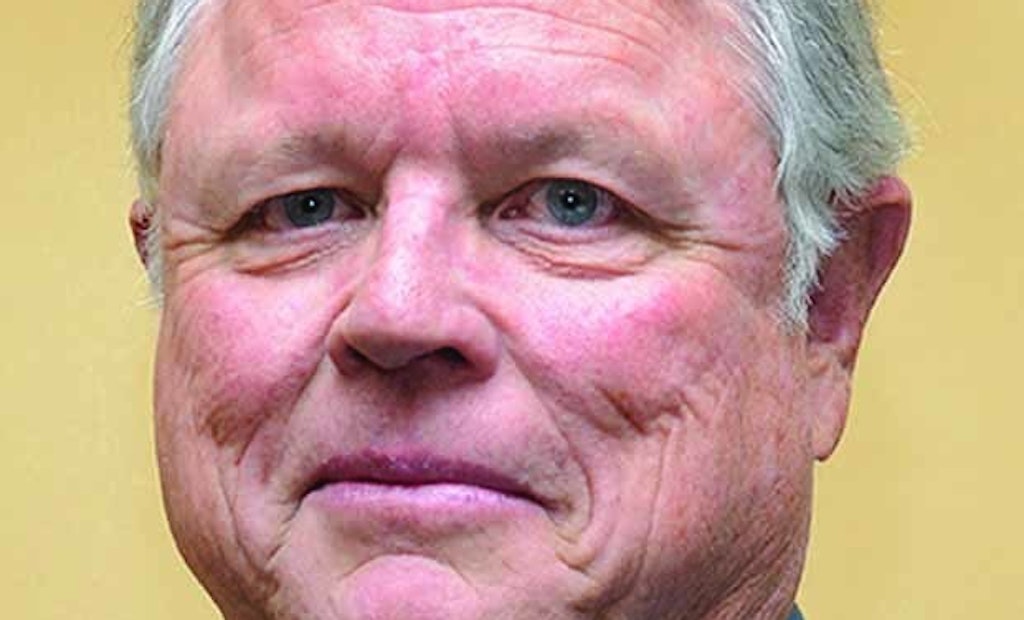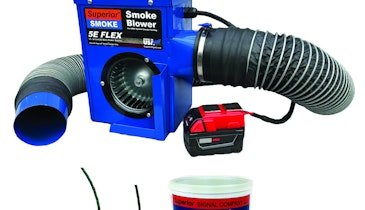Interested in Education/Training?
Get Education/Training articles, news and videos right in your inbox! Sign up now.
Education/Training + Get AlertsAs he takes over the leadership role in the National Association of Wastewater Technicians, Gene Bassett hopes to increase its already extensive training programs and, in the process, attract more members to the organization. Bassett, owner of E.C. Bassett Construction in Edgewood, New Mexico, is the new president after having served a two-year term as vice president.
Pumper: What attracted you to the role of president?
Bassett: I would like to have a chance to see how we can move the organization along. As vice president, I learned it takes a little bit of time and a lot of working together. I’d like us to attract more members and do more education, which will hopefully also attract new members.
Pumper: Looking ahead to your two-year term as president, what do you want to accomplish?
Bassett: I hope that more people recognize us for our great education and training, and for our Waste Treatment Symposium. And I hope our membership is up by another 50 to 100 people. Our industry has to keep changing, I know that. We have to keep moving forward.
After my 35 years in the business, when you’re dealing with wastewater, it’s something new and exciting every day. The more involved people are in the industry, the better the industry is.
I’d like to expand the scholarship program to get that out to more people, make them more aware of it, and get more people interested in working in the industry.
Pumper: Can you tell us a little more about the scholarship program?
Bassett: The annual $1,000 William Hapchuk Memorial Scholarship is presented in memory of one of the founding members of the Pennsylvania Septage Management Association. It’s given annually to a current full-time college student majoring in environmental science, life science or related courses. A scholarship committee evaluates and scores all the essays according to originality, clarity and composition. The individual tallying the most overall points is awarded the scholarship. The NAWT board is looking to increase the number of annual scholarships and possibly increase the amount we award. Also, our Excellence in Service Award is a great thing to honor people and companies who have done a lot of work for our industry.
Pumper: Do you have any plans for the annual NAWT symposium?
Bassett: We have the Waste Treatment Symposium in November, and I’d like to expand it by getting more vendors involved. I’d also like to get more city officials and government agencies involved. Many states, for instance, allow land application of septage, grow crops with it, and cattle can graze on it. In New Mexico, we don’t have any of that and we’re not using wastewater to its full potential. It would help to have more regulators involved so they can see things like that.
The symposium is the place (wastewater industry) professionals can meet with 150 people who also deal with their unique problems and situations. Your disposal cost is going up due to upgrades at the sewage plant, or your business has grown faster than you anticipated and you are buying additional trucks and hiring technicians to keep up. When you look at your disposal costs, they have gone beyond $300,000 per year and you see that if you can reduce those costs your business can expand.
Have you received notice that because of growth in your area, the local treatment plant is near capacity and you will not be able to deliver septage to the plant? That would put a huge dent on the profit side of the ledger. Have some farmers who have been accepting your septage sold land to developers, so you will lose your application sites?
The two days are devoted to such real situations, and those are things that NAWT has heard within the last several months. The symposium can help you determine if you should invest in a facility of your own and what it takes. It is the opportunity to see live demonstrations of dewatering technologies and to talk with people who are using them. You will go away from the symposium with a clear picture of what’s needed to establish a facility.
Attendees will learn from those who are already in the business and running successful facilities. They will learn about treatment processes, review case histories, understand the economics of unit processes and tour an operating facility.
Pumper: Are there specific plans for increased training?
Bassett: Our training includes certifications in onsite wastewater treatment system installation, inspection, operation and maintenance, vacuum truck technician, and waste treatment facilities. I’ve been on the education committee for about six years. We intend to grow our online training. We just launched our new online vacuum truck training in March. We’ll see how well that works and then maybe we’ll do installer classes like service, maintenance, O & M, and then move to something else. There’s always opportunity out there for people to learn something and get better.
Pumper: What do you see in the regulatory arena in the near future?
Bassett: They’re going to keep getting more stringent on the onsite industry. Septic systems are safe as long as they’re installed and operated correctly. We have to try to advance that thought and make people more aware that onsite systems are great things.
Pumper: Funding for agencies seems to be a growing issue. Have you seen that?
Bassett: We just had a cut in our agency here in New Mexico. That results in fewer inspectors, poorer inspections and more downtime for us. When you do have bad actors, they aren’t always caught.
I’d also like to see us working with some universities that used to get funding for wastewater research. I don’t know how we’re going to do it, but some day that funding will have to come back.






